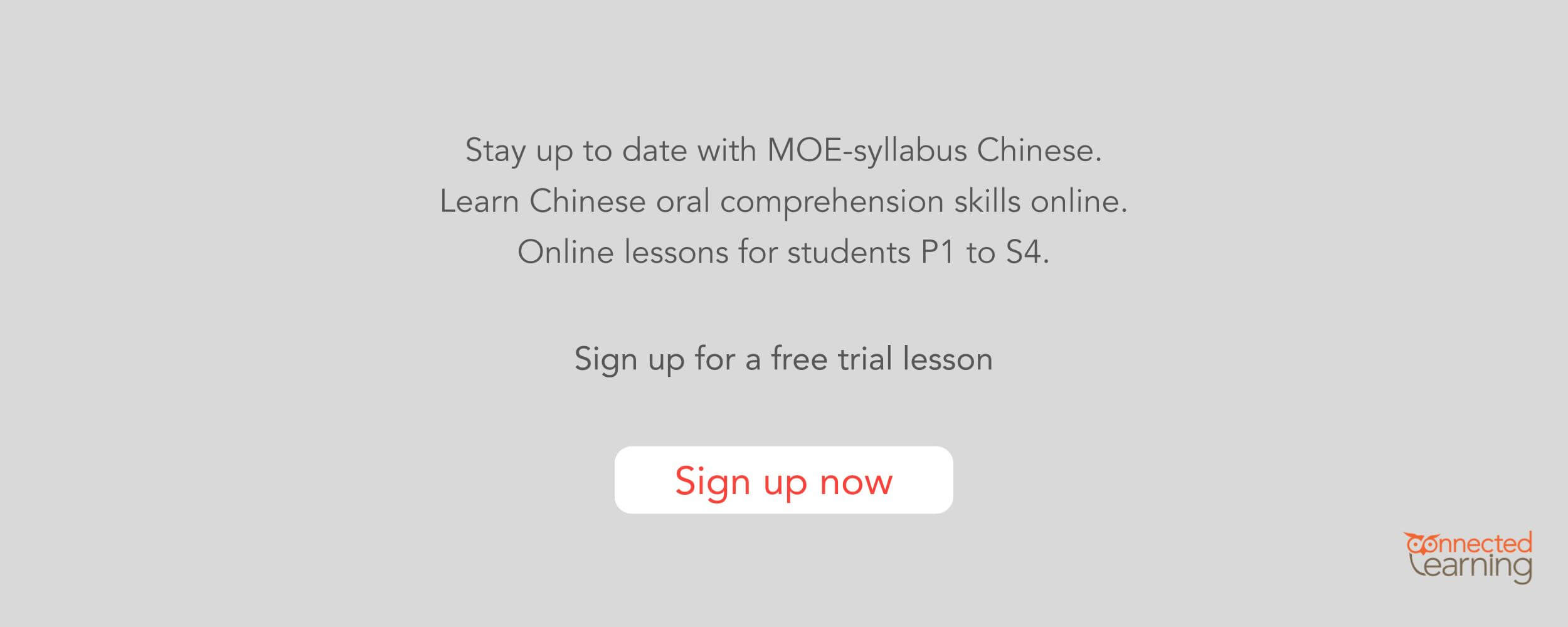Ever since the change of PSLE Chinese oral conversation format in 2017, we at Connected Learning believe that we can expect more remodelling in the education system in Singapore in time to come.
This leads us to the recent announcement from MOE about adjusting school-based assessment structures at the Primary and Secondary levels from 2019, preparing students to excel beyond exam results.
Hold on before your kid gets overly thrilled – you’d still need to find ways to help gear your kids for the current education format.
It’s crucial to know that the Chinese language is important. Learning and excelling in Chinese can open up many doors and create countless opportunities compared to their peers. It will be tough for them if they need to s pay a high price in the future if the importance of the Chinese language is ignored today. At the very least, the Chinese language should be spoken and understood for communication purposes.
At the very least, the Chinese language should be spoken and understood for communication purposes.
Unfortunately, students have been engulfed in a culture that speaks much more English than Chinese for many years now. Parents in Singapore are battling to speak mandarin with their children, even when they’re bilingual.
Even the effectively bilingual faces such issue too. We don’t underestimate how hard it is for kids to initiate the language on their own. It is honestly more than just sending them for effective Chinese oral and composition tuition. One of the most important tip for parents who want bilingual kids is by creating an environment where your kids can converse and improve their Chinese speaking skills.
Mastering the language needs consistent effort and we’ll be sharing with you incredible tricks to help your child improve their oral results.
Good Tips To Score PSLE Chinese Oral Conversation
Why tell you when we can show you? This video shows you what makes a good Chinese oral conversation during PSLE.
1. Do not hesitate to ask if the question needs to be repeated.
Nothing is worse than speaking well but answering the wrong question. No – it doesn’t make you look foolish. In fact, clarifying and making sure you get the specific angle requested by the examiner can net you a better impression.
2. Be loud and clear.
The oral conversation is also an assessment of students’ speaking confidence. Enunciating words during the process always helps in pulling up the overall grades. Not able to use ultra-difficult terms or phrases? Be at ease while being assertive! It’s a good trick to captivate attention. But having said that…
3. Learn easy-to-remember phrases and idioms.
Previously, we wrote about the 10 most versatile Chinese composition phrases & idioms. Good news — those can be used for Chinese oral conversations too! These easy-to-learn but kind-of-rare expressions will impress the teachers when used in the right place.
4. Adjust speed and tone accordingly.
Speaking is an art. The way things are said is the next most important thing to using perfect tenses or zinging things up with a noun (that also showcases knowledge). For example, talking about something happy with a straight face isn’t exactly convincing. The right mannerism at the right moment will help score big points.
5. Focus.
Spot the focal point or theme of the video shown during the exam, and think about its moral. Remember the details to have a smooth and pleasant conversation with the teachers. For example, the location, time, character, and settings. Also remember certain keywords or phrases, clothing, expressions and sequence of events.
6. Maintain the best form.
Notice how dancers practice by dancing in front of the mirror? That ensures the dancer’s best form when performing in front of the audience. The same theory applies here — form is as important as the speech itself. Practice form by recording your child’s attempt for mock oral exams, complete with video and sound. You can then review it with your child, letting them know where they did great and which area needs improvement.
7. Practice every day.
Casually practice speaking and talking every day with pieces of information. Thankfully with the help of the internet, anything can be a resource for practice (of course, ensuring they’re kid-friendly). Create conversations with your kid based on these resources and let them get used to developing and voicing opinions!
8. Expose them to different helpful mediums.
Exposure to various mediums of Chinese communication like radio, newspaper, and TV definitely works. It’s almost the best way to create a Chinese-speaking environment for your child when you’re too busy. Bit by bit, they’ll acclimatise to the language with the exposure.
Earlier on, Education Minister Ong Ye Kung spoke that students who excel in the Chinese language should be encouraged to raise the ante, so that the language can be kept alive. While we hope for more positive changes to Singapore’s education system, it’s our duty to make the learning process of Chinese as fun as the language itself.
Wonder how your child can learn Chinese oral and composition tuition? By setting up engaging lessons with our qualified tutors. See how much fun your kid will have when you sign them up with our free trial lesson!








